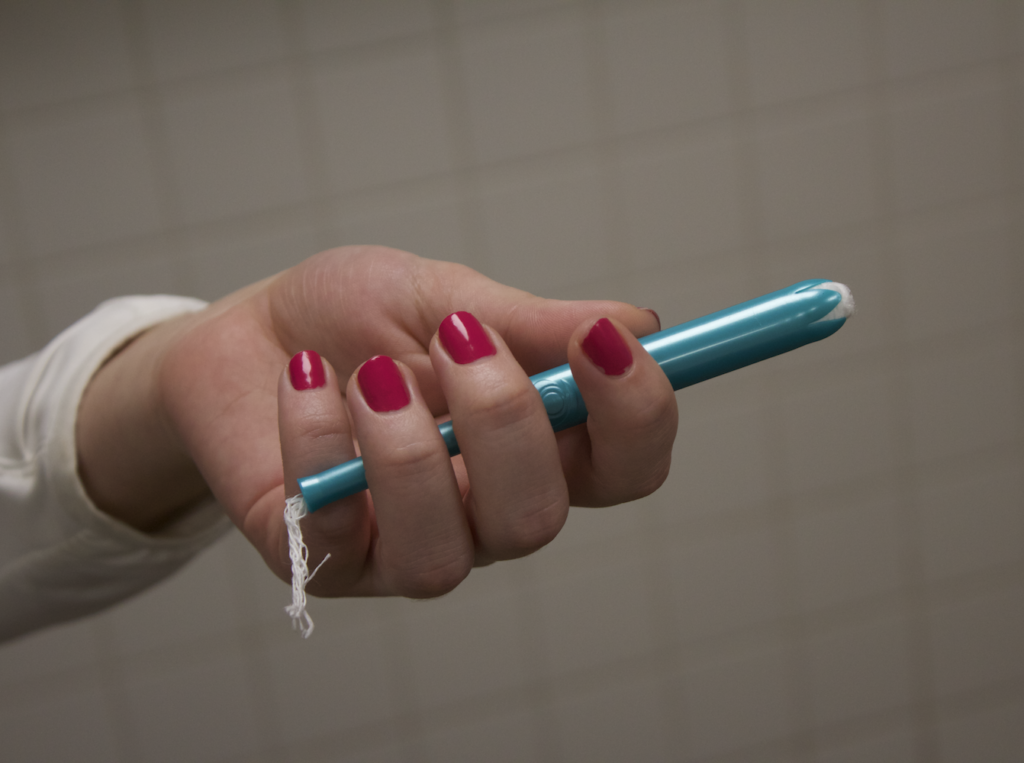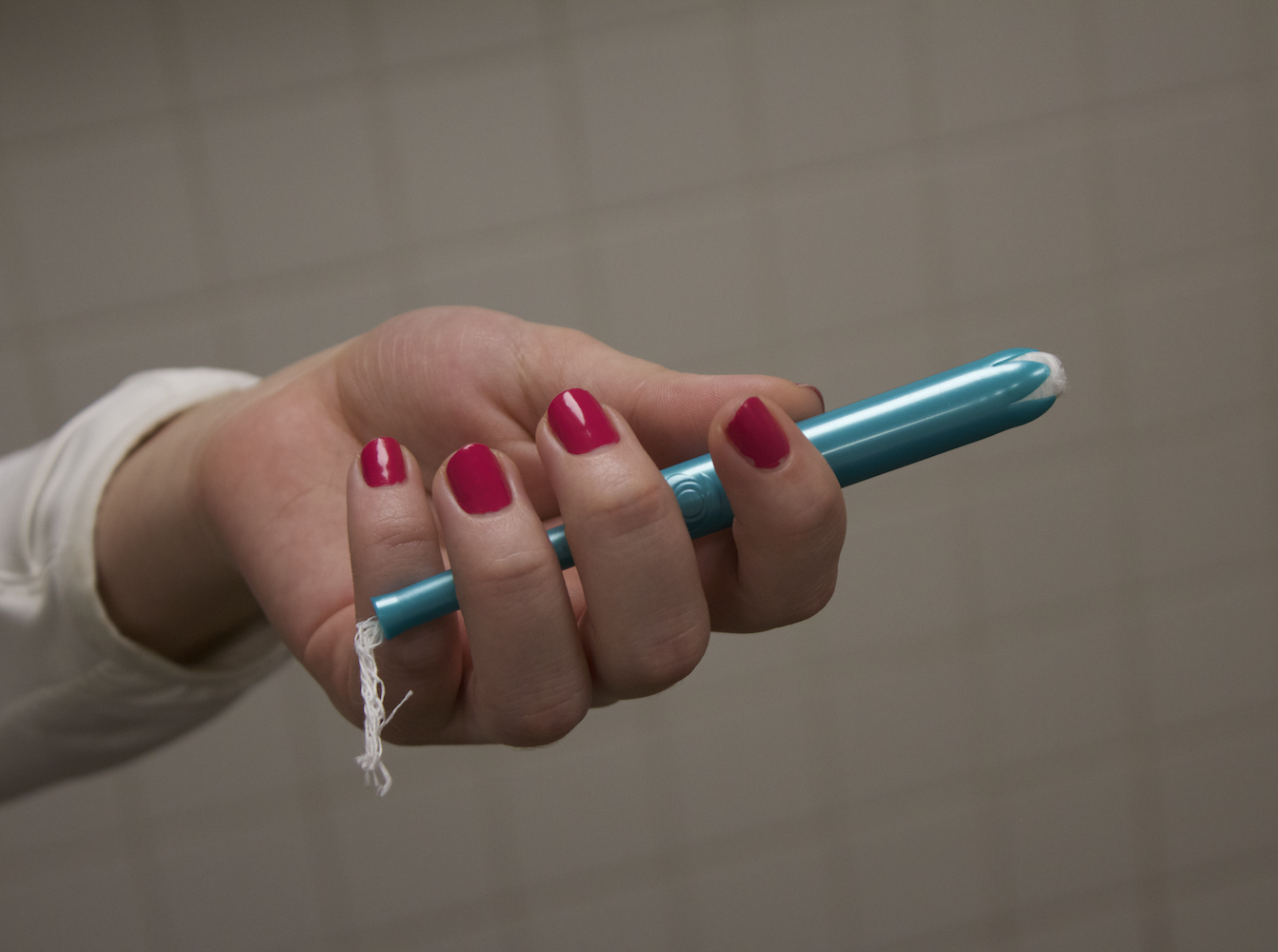Many of the finalists from this year’s Students’ Association (SA) 5K Challenge wish they had known they could publicize their proposals prior to the vote.
This, after the Pads and Tampons Initiative, a former SA Senate pet project, won the contest with over 60 percent of the vote, after months of free publicity from the SA Student Life Committee—when it lost the challenge last year, the committee started a pilot version of the initiative in Rush Rhees Library’s all-gender bathroom during the fall semester.
The SA publicity for the initiative did not come during the voting period itself, but that doesn’t mean its win didn’t benefit from it or other grooming from SA, at least in the eyes of other finalists.
And outside of that question, parties agree, the competition’s disorganization needs reform.
Only the Pads and Tampons Initiative advertised its proposal. Other proposers said they were unaware they could.
“I received an email saying that it was likely going to be a finalist proposal at the end of last semester,” said freshman Madina Jumabaeva, whose proposal was for UR United—a day to celebrate campus diversity with food booths featuring foods from various countries. “But I did not get any confirmation until they posted the seven finalists. Since I was not sure about it, I could not really ask people to vote for my project until after the choices were confirmed.”
Other runners-up said they were not told they were finalists until SA posted the list.
“Each and every finalist had submitted a project or what they wish to be improved on UR campus,” Jumabaeva said. “The whole process was not publicized enough for what they say they will do. Also, the fact that they extended the voting period and just announced the winner without the statistics shows the lack of organization by the SA.”
As early as Nov. 30, posters advertising the Pads and Tampons Initiative could be seen in the tunnel system. Email evidence shows that the Pads and Tampons Initiative was not given notice of their finalist status until Dec. 12, nearly two weeks later.
One of the initiative’s architects, Tristan Ford, a senior, said the posters were created independently of SA and hung up because he and the other planners assumed they would be finalists. SA also denied having a role in the posters.
SA adviser and Associate Dean of Students Anne-Marie Algier, who is also the Campus Times’ adviser, explained that since no one had ever advertised their idea for the 5K Challenge before, there were no rules pertaining to it.
“We didn’t have a good process,” Algier said. “It wasn’t some standardized script that we have in place from this program. Every year it grows a little bit, we get a little better at running it. I think it is worthy of a conversation to look at: should we have a scripted thing of what we should send to each of the finalists? Should we have the ability to campaign or not? We probably need to put some rules around it, like we do for elections. I think it’s worth a conversation.”
The Pads and Tampons Initiative was proposed by senior Tristan Ford and juniors Rebecca Block and Zaira Lujan.
The three of them, as well as Executive Director of Student Life and senior Nicholas Contento and Student Life Committee Legislative Chair and sophomore Criswell Lavery, worked together during fall semester to advance the Pads and Tampons Initiative in a way that some finalists viewed as unfair.
“Of course hearing this news is disappointing,” freshman Sofia Azmal, who proposed that a slide be added to the Susan B. Anthony Residence Halls swing set, said. “I didn’t think that the competition was biased by any means, but apparently it was. I thought that the Tampons and Pads initiative was really good.”
Azmal added: “There were other ways that the committee could’ve gone through to enact this initiative, but I guess committees have to do what they have to do to get funding.”
Jumabaeva agreed.
“Regarding their earlier campaign on the initiative, I do find it unfair because every project should get equal treatment whether they have won previously or new for the semester,” she said.
Comments from Contento in an interview revealed that his committee worked on the initiative with the 5K Challenge in mind.
“They were going to submit this anyway,” Contento said of the initiative during a recent interview. “We were also trying to see if we could get enough funding during the semester before the 5K Challenge to see if we could get this going. Our committee always had the 5K Challenge in its mind. We just wanted to support them. Most of our meetings were about, ‘How can we go out to help them? What can we do to support SHAC?’ It was all to help SHAC, basically.”
The Pads and Tampons Initiative was initially proposed as part of last year’s 5K Challenge. After a loss to both hot water coolers and a swing set, an SA Impact Petition garnered over 270 signatures, meaning that SA was obligated to take the proposal up. The proposal landed in the Student Life Committee, where it was taken up as an initiative, which was reported on by the Campus Times last October.
During fall semester, the Student Life Committee created two surveys—one online and one paper—to gauge student interest in the Pads and Tampons Initiative. According to Lavery and Ford, these surveys indicated a high degree of support amongst the student body for free pads and tampons, and both men and women responded to the survey.
An initial pilot program was initiated in Rush Rhees Library’s all-gender restroom during fall semester; Ford noted the launch date as Dec. 1. The pilot program utilized pads and tampons obtained from the University Health Service (UHS) and was done at no cost to both the students and UR.
This pilot program in December seems to contradict the logic of the selection of the Pads and Tampons Initiative as a 5K Challenge finalist.
“The 5K Challenge is for new ideas and for students to bring these new ideas to campus,” Floto said in an interview. “I still consider that [the Pads and Tampons Initiative] new because it hasn’t been implemented before.”
The runners-up were divided on their view of the results.
Senior Elizabeth Akauola, who proposed on behalf of Grassroots additional water refill stations, was critical but took a milder tone towards the results.
“Personally, I don’t think the Tampons/Pads Initiative benefits the entire university, and not all girls use tampons,” Akauola said. “Not to mention, not all girls use the all-gender bathrooms, where these items will be placed. On another note, I feel that free tampons and pads should have been implemented a long time ago and should not have relied on the 5K Challenge.”
A few of the runners-up were fully supportive of the results, including freshman Julian Maceren, who proposed an inflatable ball pit to be set up during finals week.
“Although I would have loved to have ball pits during finals,” Maceren said, “I think the Pads and Tampons Initiative does well in voicing women’s struggles. Just as people don’t need to bring their own toilet paper to public restrooms, women shouldn’t have to supply their own tampons/pads for a bodily function they did not choose to have.”
Regardless of opinion on the situation, most of the runners-up felt that SA needed to be far more organized in its implementation of the 5K Challenge.
Correction (2/13/17): A previous version of this story misspelled freshman Madina Jumabaeva’s first name as “Madiva.” It has been updated to fix the inaccuracy.



